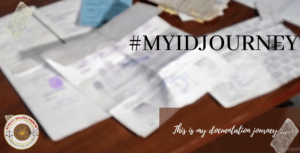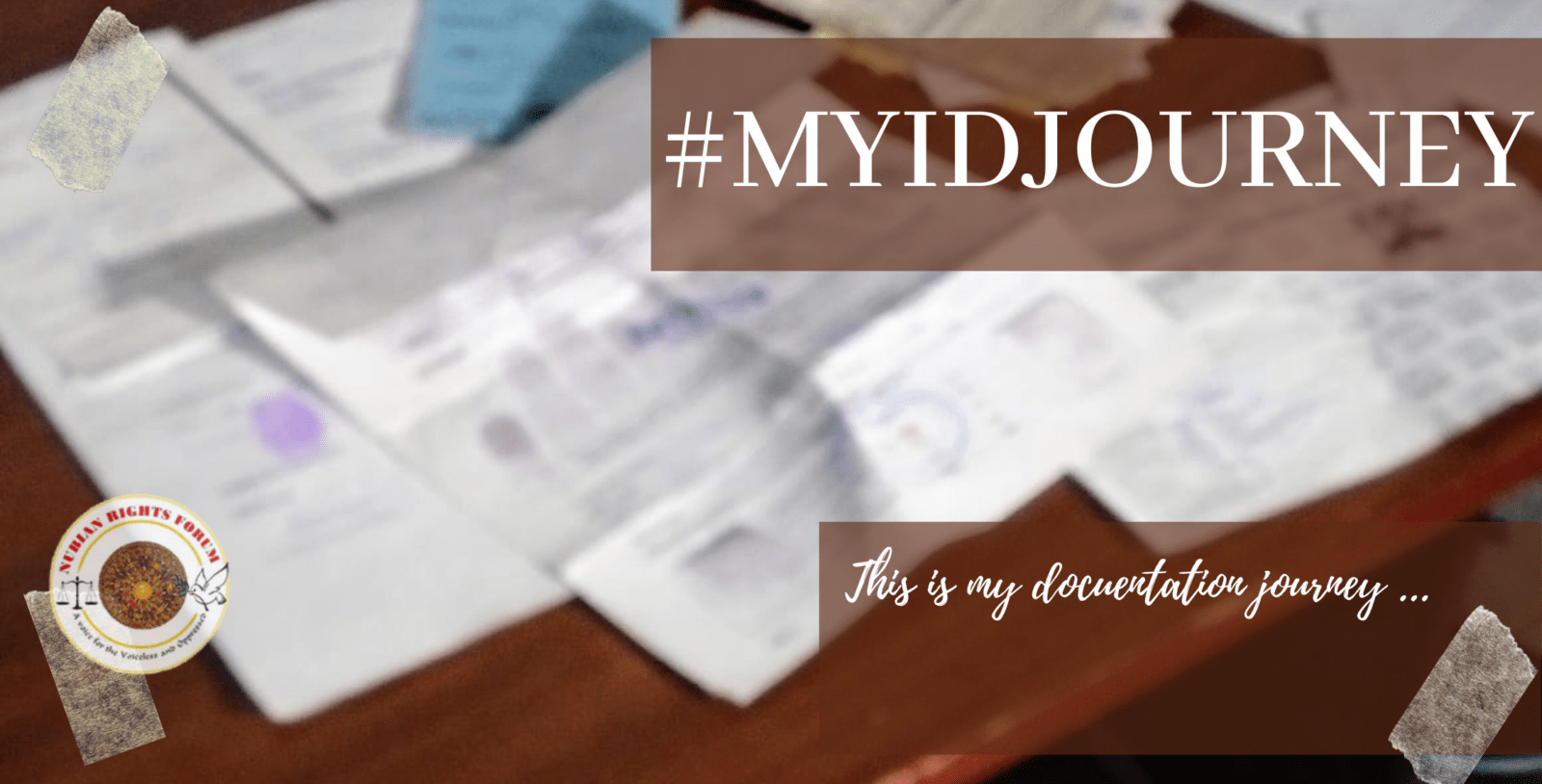The Nubian Rights Forum has a competent outreach program where our paralegals give back to the community by educating them and creating awareness on citizenship, specifically registration and documentation. One of the awareness activities includes a conversational session where they educate the clients about identification cards, the benefits of documentation, benefits of documentation and finally inquiring if the target client has an identity card.
Today through our outreach program we discuss a success story. The story of Yusuf Ali, a young man hailing from Kibera in his early 20’s. One of our paralegals Annette Opiyo met with Yusuf during a field outreach, in 2017 at a car wash point where he worked. When asked how he got the job, he let our paralegal know that the car wash was an initiative that helped with youth empowerment in the community. During their conversation with our paralegal, once he understood the reason of the outreach program, he opened up about his struggles to get documentation. Yusuf had challenges acquiring an identity card because he lacked several documents including a school leaving certificate and his parents’ supporting documents. Due to the lack of documents and the lack of a representative to guide him he had a challenge getting past the vetting committee who told were not obliged to listen to him unless he had all documents. After three application attempts with no lack, Yusuf completely gave up on the process citing the lack of clarity from the duty bearers on what he needed to carry with him. The process of acquiring an identification card can be challenging especially if the duty bearers do not take responsibility in creating awareness on the required documents for registration and he listed it as a reason as to why many youths stop searching for their Identity cards.
The complexity of Yusuf’s case stemmed from the fact that lack of documentation had prevented him from pursuing his dreams after finishing his basic education. Yusuf’s aspirations were to move abroad, to Saudi Arabia in search of greener pasture or to pursue tertiary education in college. However, without documentation he shelved his dreams and instead worked as a car washer. Yusuf’s case is an example of the limitations to youth empowerment especially for minority communities, marginalized groups and youth in informal settlements. His story highlights the need for community sensitization on the registration process and a continuous dedication to making sure citizens are aware of their rights and due procedures in documentation.

We picked up Yusuf’s case because we believe we could provide direction in getting him documentation. After the outreach, our paralegal Annette took his details and later called him to the office for follow up. The second challenge with his case was that Yusuf did not have access to a phone and we had to rely on communication through a third party. He could not invest in a mobile device because he would need an identity card to sign up. As a representative, Annette walked him through the process beginning with a consultation with the chief to help him get a letter to take to his former school so that his result slip be released. While the process was unsuccessful at first because we could not get the chief to meet us, we finally got a hold of the result slip after joint efforts with other paralegals. Yusuf, due to earlier discouragement did not believe that we would be successful but he kept on showing up. With the result slip we went back to the chief’s camp for the elder’s vetting but he was again turned away and asked for more supporting documents to get a green light for the national vetting. This was another hurdle for Yusuf who was a total orphan and did not know how to get his parent’s death certificates. An alternative was asking Yusuf to come to the office with a legal guardian who would swear an affidavit that s/he knows Yusuf and would let us use their documents for supporting documents. A distant uncle agreed to help, and he passed the elder’s vetting and was booked for national vetting. During the national vetting, the committee doubted his age that is 20years and they did not approve him applying until an age assessment was done. At this point, Yusuf felt the need to discontinue the process because of the constant rejections, but we felt it prudent to proceed to the end considering his aspirations were on condition of him acquiring documentation. The age assessment gave an approximation of 18-20 years. We went back to the elders and a national vetting date was booked. He finally passed the national vetting and applied for the identity card and was given a waiting card. He finally got his identification after three months, and was later able to apply for a birth certificate. Yusuf is currently abroad pursuing greener pastures. We are glad he finally got documented and is pursuing his dreams.
